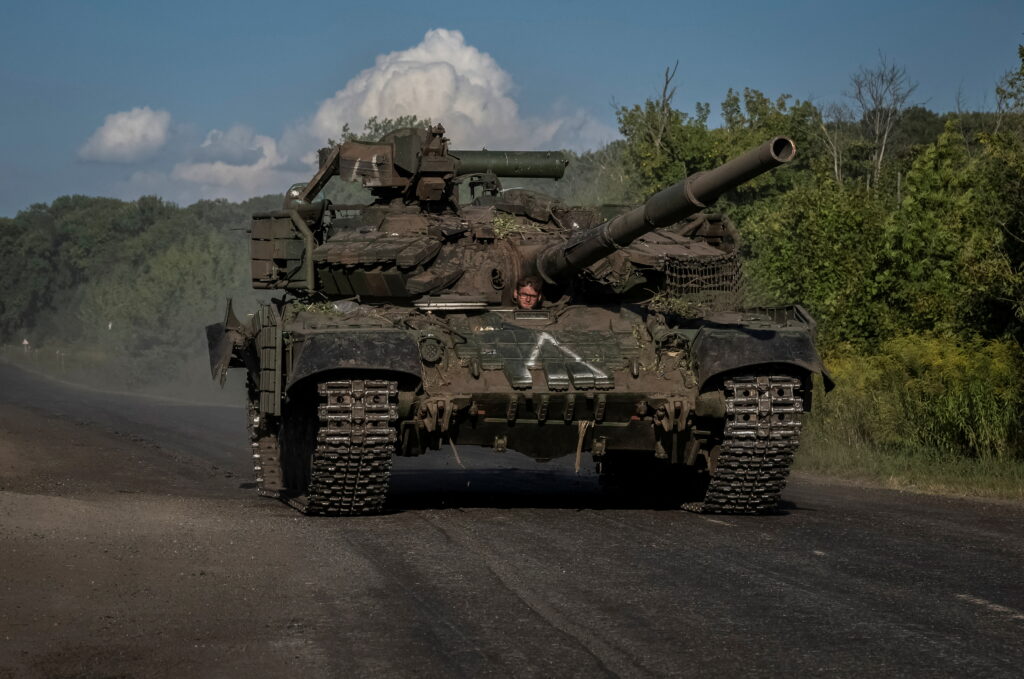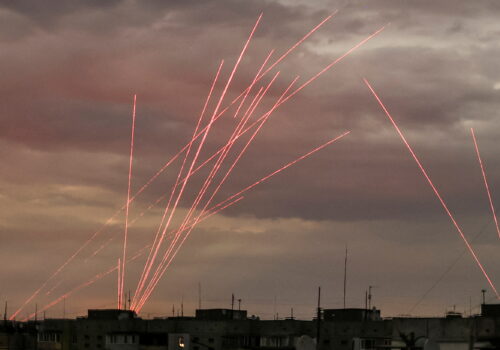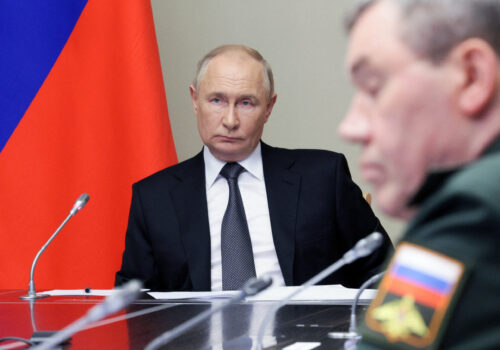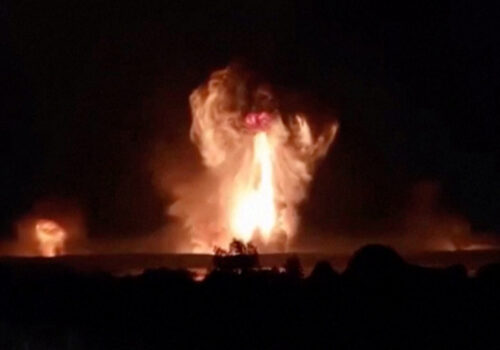Ukrainian President Volodymyr Zelenskyy is due to present his widely anticipated Victory Plan to United States President Joe Biden later this week. While the details of Zelenskyy’s plan have yet to be made public, it should already be obvious that any serious peace proposal must include a significant boost in current military support for Ukraine, together with the kind of credible long-term security commitments that can safeguard the country against further Russian attacks. In the absence of such conditions, it makes little sense for Kyiv to accept a temporary pause in hostilities that would legitimize Russian aggression and lead to a further weakening of Ukraine’s already precarious position.
More than two and a half years since the start of Russia’s full-scale invasion, there is currently little indication that Vladimir Putin has any interest in peace. Instead, the Russian ruler makes no secret of his continued commitment to the destruction of the Ukrainian state.
While the Kremlin frequently voices its readiness for peace negotiations, the terms Moscow has in mind would make Ukrainian statehood virtually impossible. Putin often references peace talks held in Istanbul during the initial phase of the war as the basis for a future deal. But Russia’s demands in spring 2022 included the drastic reduction of the Ukrainian army to around ten percent of its current strength, along with a commitment to Ukrainian neutrality and a Russian veto on any future international military support. In other words, Moscow seeks to leave Ukraine nominally independent but completely at the mercy of Russia.
This uncompromising push for Ukraine’s capitulation reflects Putin’s well-documented obsession with the country. For many years prior to the current full-scale invasion, Putin regularly demonstrated his contempt for Ukrainian independence while insisting Ukrainians are actually Russians (“one people”). Since 2022, he has openly compared his invasion to the eighteenth century imperial conquests of Russian Czar Peter the Great, and has argued that far from seizing Ukrainian territory, he is actually reclaiming “historically Russian lands.” If he is allowed to succeed in Ukraine, it is naive to imagine Putin will not target the many other countries in the neighborhood that also meet his definition of “historically Russian” due to their former status within the Russian Empire.
Stay updated
As the world watches the Russian invasion of Ukraine unfold, UkraineAlert delivers the best Atlantic Council expert insight and analysis on Ukraine twice a week directly to your inbox.
The kind of land-for-peace deals favored by some Western politicians and pundits are equally unlikely to bring about a sustainable peace. Any attempt to freeze the conflict along the current front lines would reward Putin for his decision to launch the biggest European invasion since World War II, while also legitimizing the Russian occupation of almost one-fifth of Ukraine. Emboldened by this success, Moscow would use any ceasefire to rearm. The Kremlin would also work to destabilize the remainder of the Ukrainian state in preparation for the next stage of the invasion.
The first step toward any realistic settlement is convincing Russia that it cannot hope to prevail on the Ukrainian battlefield. At present, Russia is proceeding from the assumption that it will be able to continue establishing facts on the ground via overwhelming military force. Despite sustaining extremely heavy losses, the Russian army is currently advancing slowly but surely in eastern Ukraine. These gains allow Moscow to undermine morale in Ukraine itself and among the country’s partners, creating the conditions for ultimate political success. In order to stop Putin’s war machine, the West must dramatically increase military aid to Kyiv and lift restrictions on Ukraine’s ability to strike back inside Russia.
Unless this happens, Putin will have very little reason to consider ending his invasion. Russian military recruitment levels are currently sufficient to make up for the high casualty rates in Ukraine, with vast sums of money being offered to attract new volunteers. Despite unprecedented sanctions, the Russian economy shows no signs of collapse and has instead transitioned successfully to a wartime footing. With no serious anti-war movement in Russia, Putin is unlikely to face any domestic challenges. Moscow can also rely upon mounting weapons deliveries from its North Korean and Iranian allies. In such circumstances, why would Putin agree to peace on anything other than his own terms?
Eurasia Center events

Defeating Russia on the battlefield is only the first part of the challenge, of course. A durable peace will only be possible once Ukraine is no longer stranded in geopolitical no man’s land and becomes fully embedded into the security framework of the Western world. This means NATO membership, or the equivalent level of security commitment via binding bilateral agreements. Understandably, there is zero appetite in Ukraine for a repeat of the 1994 Budapest Memorandum and its disastrous “security assurances.” Recent security pacts signed by Kyiv and dozens of partner countries are a welcome step, but fall far short of the commitment levels necessary to deter Moscow.
At present, Putin remains confident that he can achieve his goals in Ukraine by outlasting the West. In order to create the conditions for a sustainable peace, the Russian dictator must therefore be persuaded that the democratic world is committed to Ukraine for the long-term, and convinced that any future aggression would involve unacceptable costs for the Kremlin.
Western leaders can send an unambiguous message to Moscow without breaking the bank. Indeed, there is a strong economic argument for doing so, as supporting Ukraine today is far cheaper than the potential cost of rearming to face a victorious Russia tomorrow. Recent calculations suggest that a commitment of just 0.25 percent of GDP from each of Ukraine’s partners would make a major difference.
The Russian invasion of Ukraine is now entering a critical stage. Decisions taken in Western capitals in the coming weeks will likely have a major impact on the future course of the war and the shape of any eventual peace agreement. At present, Ukrainians have little to gain from a ceasefire that would strengthen Russia and leave their own country more vulnerable than ever. Instead, they are looking to secure the kind of military aid and security commitments that can allow Ukraine to regain the upper hand on the battlefield and set the stage for a sustainable peace.
If Ukraine’s vision for victory receives sufficient support, there is still a good chance that a lasting peace in Europe can be achieved. However, if Western countries seek to appease Russia in order to achieve a temporary pause in hostilities, they will be condemning Ukraine to catastrophe and setting the stage for a much bigger war.
Mykola Bielieskov is a research fellow at the National Institute for Strategic Studies and a senior analyst at Ukrainian NGO “Come Back Alive.” The views expressed in this article are the author’s personal position and do not reflect the opinions or views of NISS or Come Back Alive.
Further reading
The views expressed in UkraineAlert are solely those of the authors and do not necessarily reflect the views of the Atlantic Council, its staff, or its supporters.

The Eurasia Center’s mission is to enhance transatlantic cooperation in promoting stability, democratic values and prosperity in Eurasia, from Eastern Europe and Turkey in the West to the Caucasus, Russia and Central Asia in the East.
Follow us on social media
and support our work
Image: Ukrainian servicemen ride a tank amid Russia's attack on Ukraine, near the Russian border in Sumy region. August 15, 2024. (REUTERS/Viacheslav Ratynskyi)




